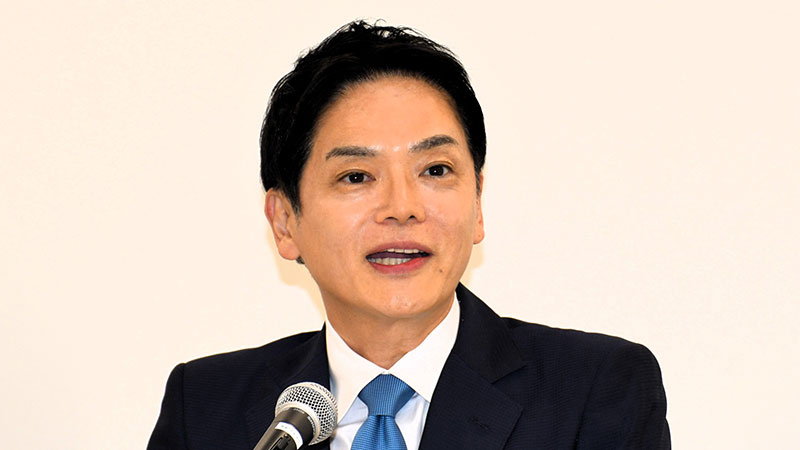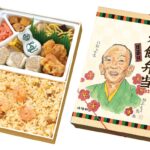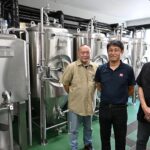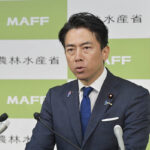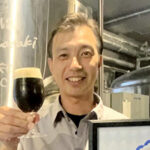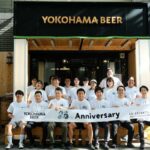The Yokohama mayoral election, triggered by the expiration of the current term, has been officially announced, with campaigning intensifying ahead of the August 3rd vote. Here’s a look at the six candidates running for office—their motivations, policies, and backgrounds.
Before becoming mayor of Yokohama, he was a professor at the municipal university’s medical school, specializing in data science. His work involved analyzing vast amounts of information from a medical perspective to find solutions to societal challenges. Alongside his research, he began contemplating the sustainability of Yokohama as a city, eventually deciding to bring a data-driven approach to municipal governance. Reflecting on his first four-year term, he described it as “a daily battle.” However, he noted progress in key initiatives like childcare support, stating, “Many policies have taken root and are now growing. A positive cycle is emerging.” He also emphasized the development of data-handling talent, including the establishment of a dedicated department last spring. Moving forward, he aims to use data to assess how policies impact citizens’ lives.
“What politicians need is a meddlesome spirit,” she says. As a Yokohama city council member for 14 years, she spearheaded major projects like infrastructure development and the establishment of a pediatric hospice while staying attuned to residents’ concerns. She once took in a homeless teenager, believing that “helping one person in front of you is how you earn the trust of 3.77 million citizens.” Originally from Tokunoshima Island in Kagoshima, she moved to Tokyo at 18, later settling in Yokohama after a workplace marriage. After her eldest son’s birth, she launched a community council, where discussions with city officials about disaster preparedness and childcare made her realize the limitations of acting as a private citizen. Encouraged by former Prime Minister Yoshihide Suga, she ran for city council as an unknown newcomer without political backing.
In his student days, his novel Somehow, Crystal became a bestseller, catapulting him to fame. At 44, he became governor of Nagano Prefecture, making headlines with his “anti-dam declaration.” After serving as a national lawmaker, he worked as a DJ for FM Yokohama. As his public commentary on city issues grew, he ran in the previous mayoral election. This time, he’s held over 100 town hall meetings to shape his platform, “20 Promises for a New City Government.” His pledges include repealing corporate relocation incentives, overhauling the 2027 International Horticultural Expo, and creating a 24-hour hotline for citizens to bypass bureaucracy. His goal is a government where “officials serve residents like a comprehensive service industry.”
At 55, researching his family history revealed that his great-grandfather ran a tea business in late-Edo Yokohama, pioneering domestic black tea production. Tracing his ancestors’ contributions to the city’s growth, he felt compelled to “devote my remaining years to Yokohama.” A lifelong resident, he vividly recalls the 1989 Yokohama Exposition during the bubble economy. “Back then, families thrived without spending extravagantly.” Now, with the city’s vitality waning due to depopulation, his campaign theme—”Yokohama, Again.”—aims to reverse the trend.
In 1977, he founded “Tsuma Sei,” a supplier of vegetables to hotels and restaurants around Yokohama, and now serves as chairman. His group companies span diverse sectors, from daycare centers to a famed cheesecake brand. “I want to repay Yokohama, which nurtured me, with a merchant’s sensibility,” he says, explaining his decision to run. A licensed chef, he’s passionate about food. His platform includes rebuilding all elementary and middle school gyms with attached kitchens to serve as hubs for school lunches and community dining. He proposes funding this through municipal bonds, repaid by boosting corporate tax revenue via local business support.
The youngest of three in a single-parent household, he grew up in “a very tough environment—but with immense support.” His eldest brother quit university to pay his high school fees; his mother respected his career choices. City programs for single parents also helped. After college, he worked to ease his family’s burdens, then started a cloud-sourcing business at 27. Though successful with multiple ventures, he remains humble: “It’s been one lucky break after another.”

